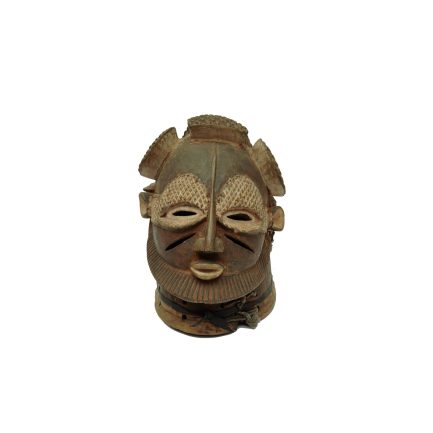

Great Library of Alexandria
The Magnificent Alexandria Library: A Beacon of African Art and Learning
The splendid Great Library of Alexandria, nestled in the heart of Egypt, represented a pinnacle of intellectual achievement and a beacon of the ancient world. Part of the Mouseion, a grand research institution dedicated to the Muses - the nine divine patronesses of arts - this library held an unparalleled significance in the annals of African Art and global scholarship.
The Genesis of the Universal Library
The concept of a universal library in Alexandria is attributed to Demetrius of Phalerum, an Athenian statesman exiled to Alexandria. While Ptolemy I Soter may have conceived the plans for this significant establishment, it's believed that the actual construction materialized under the reign of his son, Ptolemy II Philadelphus.
An Enviable Collection
Thanks to the Ptolemaic kings' robust policies for acquiring texts, the library quickly amassed a vast number of papyrus scrolls. While the exact number remains a mystery, estimates suggest that the library held anywhere from 40,000 to a staggering 400,000 scrolls at its zenith.
Alexandria: The Capital of Knowledge and Learning
The Great Library of Alexandria transformed the city into a metropolis of knowledge and learning. Many influential scholars, including Zenodotus of Ephesus, Callimachus, Apollonius of Rhodes, Eratosthenes of Cyrene, Aristophanes of Byzantium, and Aristarchus of Samothrace contributed to the scholarly grandeur of this African Art Museum.
The Daughter Library and the Gradual Decline
During the reign of Ptolemy III Euergetes, a subsidiary library found its place in the Serapeum, a temple dedicated to the Greco-Egyptian deity, Serapis. However, the decline of the Great Library began in 145 BC under Ptolemy VIII Physcon, leading to the purging of intellectuals and a reduction in scholarly activities.
The Library's Destruction: A Gradual Erosion Rather Than a Single Event
Contrary to popular belief, the Library's demise was a slow process, not a cataclysmic event. While a portion of its collection was accidentally destroyed by Julius Caesar during his civil war in 48 BC, the Library seemed to have survived or was rebuilt shortly after. However, due to a lack of funding and support during the Roman Period, the Library's influence diminished gradually. By 260s AD, its membership had likely ceased.
The Final Chapters
Between 270 and 275 AD, Alexandria witnessed an imperial counterattack and rebellion that likely destroyed any remaining fragments of the Library. The Serapeum, the daughter library, may have survived longer, but it too met a tragic end in 391 AD under a decree by Coptic Christian Pope Theophilus of Alexandria.
Location
Contact Information
Contact Listings Owner Form
Great Library of Alexandria 0 reviews
Write Your ReviewThere are no reviews yet.















 No products in the basket.
No products in the basket.